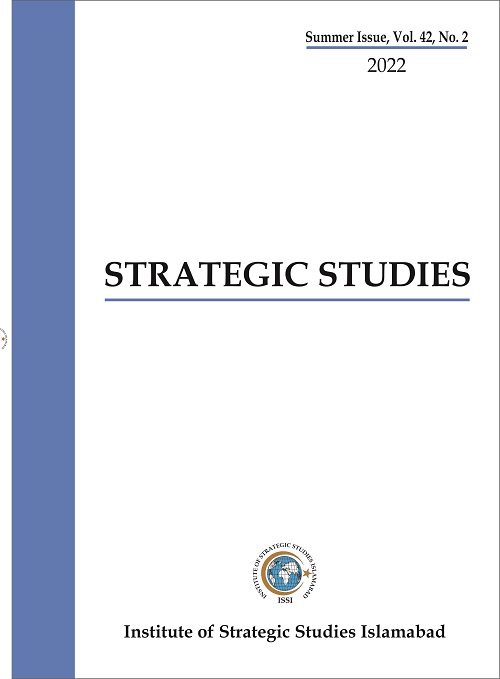Pakistan-India Relations: A Critical Appraisal of Power Politics
Keywords:
Pakistan, India, Balance of Threat, Balance of Power, Threat Perception, Power Politics, Composite Dialogue, DiplomacyAbstract
Pakistan-India relations are mired in power politics making the two countries as rivals with competing identities and interests. By the logic of power politics, the two neighbouring countries survive in a condition of security dilemma and are locked in patterns of enduring rivalry, militarised geopolitics and antagonistic national security paradigms. Despite the enduring rivalry, the India-Pakistan relations are also marked by contexts of cooperation where the two sides have exhibited orderly relations and given way for negotiations. In order to give meaning to this oscillating state-to-state relationship, the present study looks into the variable of threat perception whether it is an objective phenomenon or a subjective phenomenon. To this end, the study aims at demystifying Pakistan-India relations from the lens of Stephen Walt’s Balance of Threat Theory. By bringing up the ideational component of ‘aggressive intentions’ in his model, Walt conceptualises threat perception as a subjective phenomenon, which allows for an emancipatory framework of meaning and action that goes beyond the orthodox and regressive logic of traditional power politics to understand Pakistan-India relations. The present study argues that the state elites of the two countries can dial down their tensions by transforming their will and intentions towards more peaceful behaviours and outcomes.

Published
How to Cite
Issue
Section
Copyright (c) 2022 Strategic Studies

This work is licensed under a Creative Commons Attribution-NonCommercial 4.0 International License.



